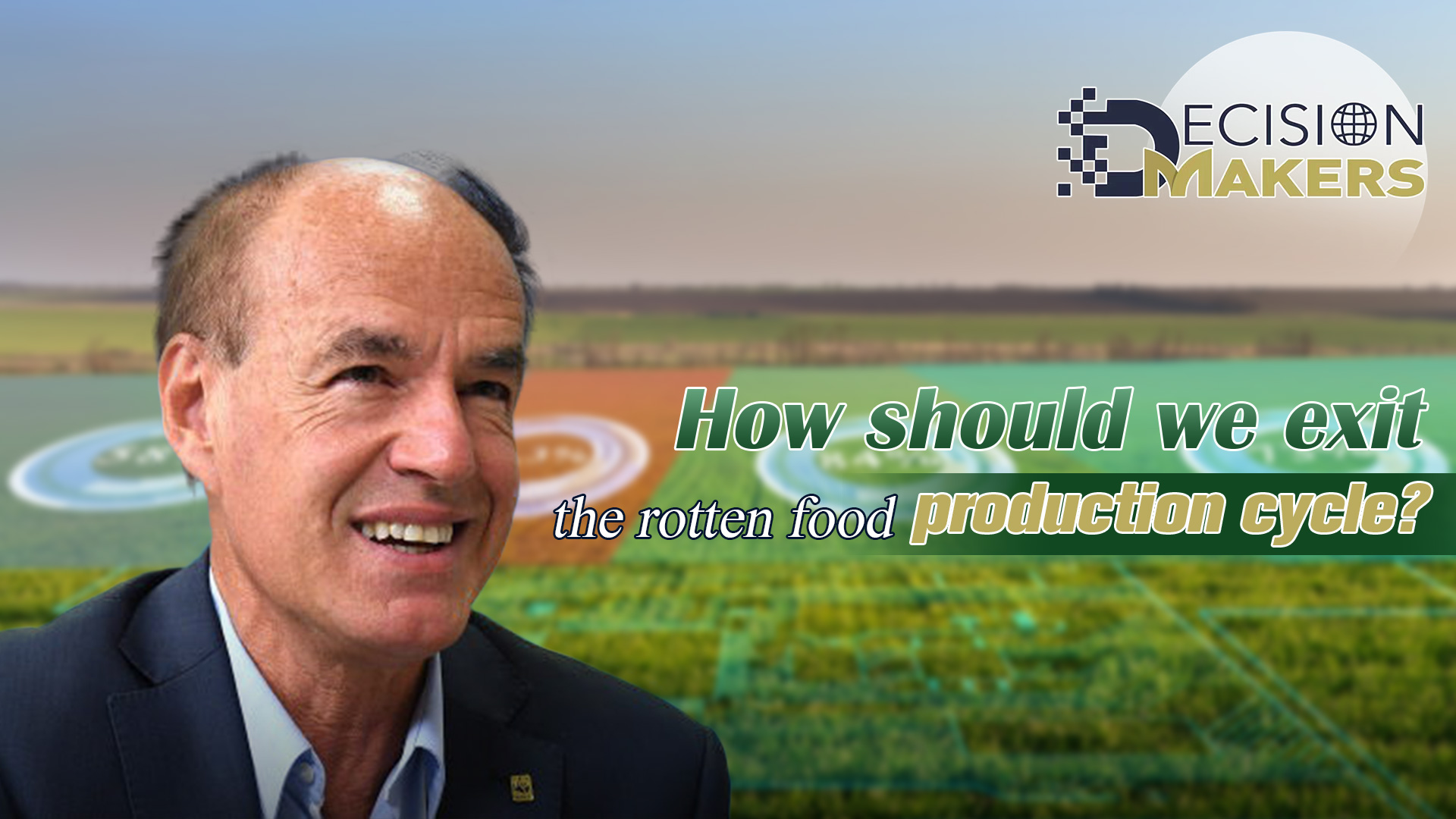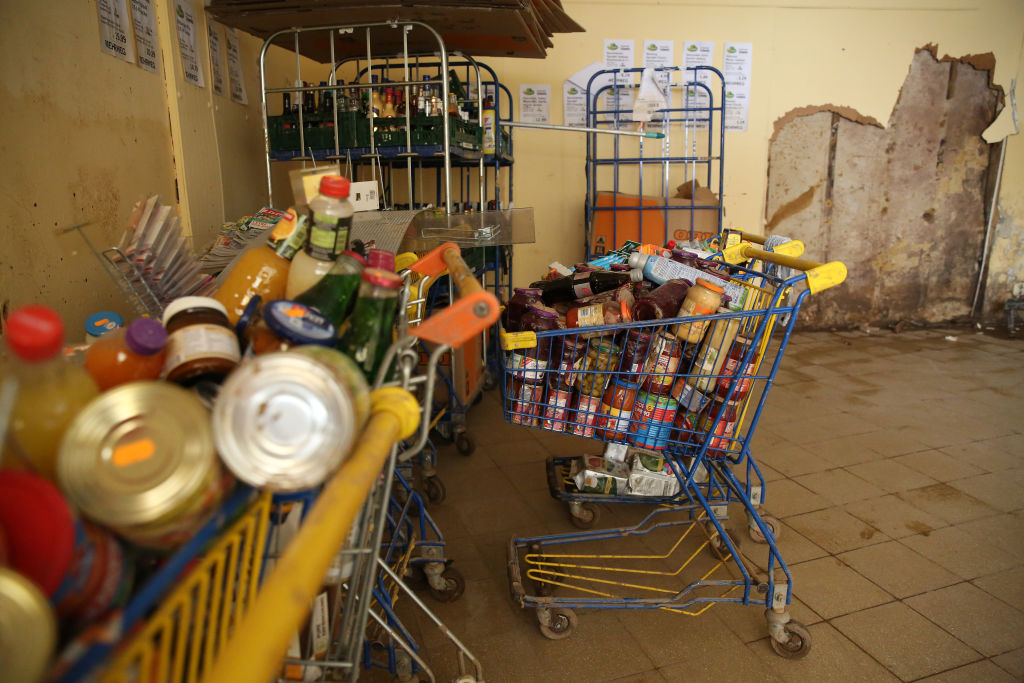
Editor's note: Decision Makers is a global platform for decision makers to share their insights on events shaping today's world. Marco Lambertini is Director General of WWF International. The article reflects the author's opinions and not necessarily the views of CGTN.
A global pandemic,record global temperatures causing more wildfires and floods than ever before, 1 million species at risk of extinction - what have these to do with food? Everything.
Never has it been more clear that our broken relationship with the natural world is placing human health and livelihoods at risk. What is often overlooked, however, is the role of our food systems in this planetary emergency - how we produce, process, distribute and consume food. They are simultaneously put at risk by, and driving threats of, climate change and nature loss.
Many experts now believe the only way we can address the challenge of our lifetime is to transform our food systems. But right now, we are stuck in a vicious circle of food production causing damage to the planet, which in turn causes damage to food production.
Next week, stakeholders from across food systems will gather virtually and in Rome to set in motion game-changing action across the public and private sector. This gathering will function as a pre-summit before the inaugural UN Food Systems Summit, a first-of-its-kind global dialogue aimed at accelerating and scaling food systems transformation with the urgency needed.
Unsustainable food systems are the biggest strain on our planet. We use 34 percent of all the planet's land to produce food, and 70 percent of all water. These systems rely on nature, but at the same time food production has caused 80 percent of deforestation, 70 percent of terrestrial biodiversity loss and 50 percent of freshwater biodiversity loss. It is responsible for around 30 percent of greenhouse gas emissions.
This puts ever greater pressure on nature and climate, undermining its ability to support us, increasing our vulnerability to pandemics, and accelerating global warming.
Yet, for all the resources we use, and for all the food we produce, between 720 and 811 million people in the world went hungry in 2020 – as many as 161 million more than in 2019 - while close to 40 percent of all food goes uneaten.
Without systemic change in how we produce, consume and waste food, we will need to produce approximately 50 percent more calories to adequately feed a growing population. This means even more land, water, nature loss and emissions. The issue is compounded by current production degrading farmland (over half is currently disused or underperforming) which drives even more conversion and release of carbon into the atmosphere.

Salvaged food items sit in grocery carts inside a destroyed supermarket after a major flood in Germany's mountainous Eifel area in the town of Arloff, Germany, July 19, 2021. /Getty
Salvaged food items sit in grocery carts inside a destroyed supermarket after a major flood in Germany's mountainous Eifel area in the town of Arloff, Germany, July 19, 2021. /Getty
So what can be done? Action on climate, food and nature must go hand in hand if we are to tackle these huge risks. The upcoming Food Systems Summit has been primarily framed in the context of tackling hunger. An absolutely vital objective, but one which will be in vain if we don't also tackle climate change and biodiversity loss; how on Earth can we feed people if we can't make food?
It will not be possible to meet nature and climate goals without food systems transformations. We must halve greenhouse gas emissions by 2030 and promote nature-based solutions, including improving food systems, which can contribute about a one third reduction in global emissions, needed to keep global warming to 1.5 degrees Celsius.
We need to account for current and future food production needs, but if we do not restore biodiversity and limit climate change, we cannot hope to produce enough healthy and nutritious food to feed everyone.
In the next 12 months, we have a unique opportunity to course-correct. The Leaders' Pledge for Natureis a united signal to step up global ambition in response to our planetary emergency, and create a 'nature-positive'world.
There is also a momentous opportunity to achieve a New Deal for Nature and People. This entails placing nature and nature-based solutions at the heart of our political, social and economic systems, and setting nature on the path to recovery by 2030, in support of and supported by urgent climate action and the Sustainable Development Goals.
The discussions in Rome next week, along with those at UN Biodiversity Conference (UNCBD COP15) in October and the UN Climate Change Conference (UNFCCC COP26) in November, can set us on a path to reduce the impact of food systems on biodiversity and climate, and aid development for all people.
A path to ensure, by 2030, there is no net loss of biodiversity from food production, we achieve net zero greenhouse gas emissions from food production, and stop deforestation and conversion of natural habitats for agriculture and aquaculture production.
Success depends on integrated goal-setting. Food systems targets need to be integrated into Nationally Determined Contributions of the Paris Climate Agreement, and in the post-2020 global Biodiversity Framework, to transform the way we produce (through agroecology and regenerative agriculture), process and distribute (reducing food loss and waste), and consume food (shifting to healthier and more sustainable diets).
The Food Systems Summit is a key moment to address the triple challenge of halting and reversing biodiversity loss, limiting climate change to 1.5 degrees Celsius, and providing everyone with healthy and nutritious diets within planetary boundaries.
We envision a future in which people and nature live in harmony. As a conservation organization, it is our responsibility to help transform food systems – without doing so, development, climate and nature goals will go unmet.
We are now in the decade of action - and an integrated, coordinated approach starts with the Food Systems Summit.
(If you want to contribute and have specific expertise, please contact us at opinions@cgtn.com.)

